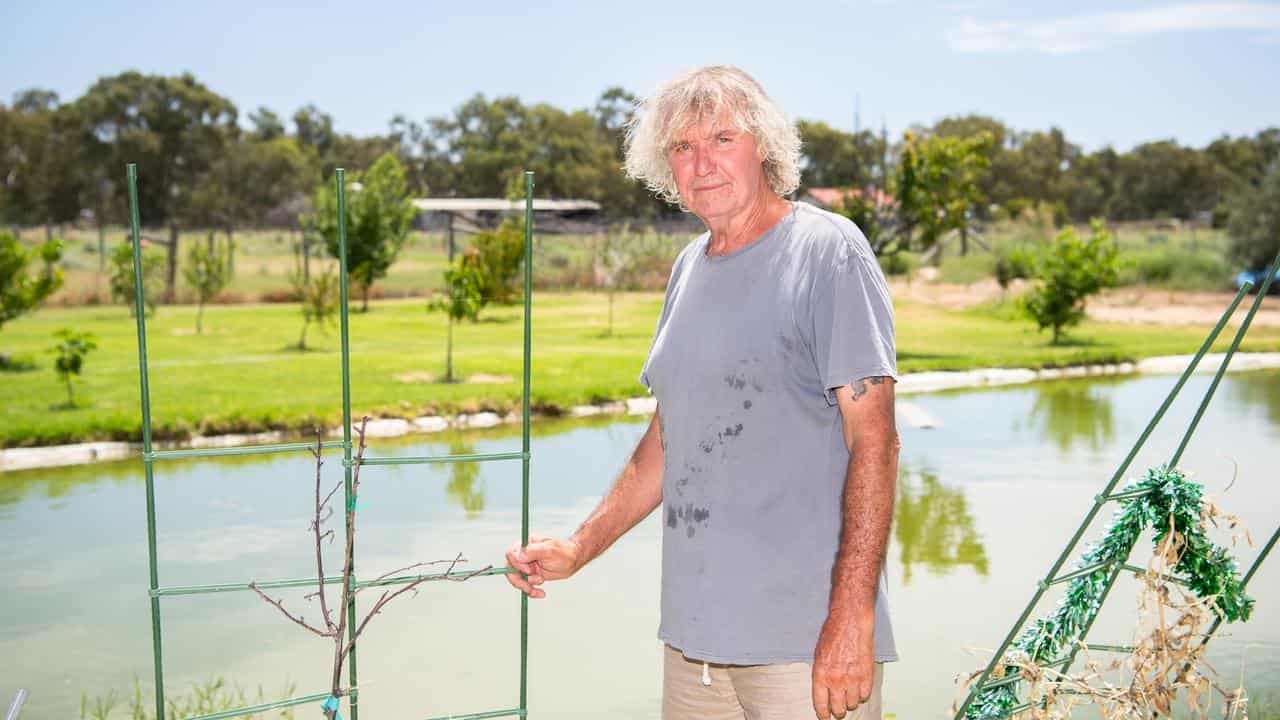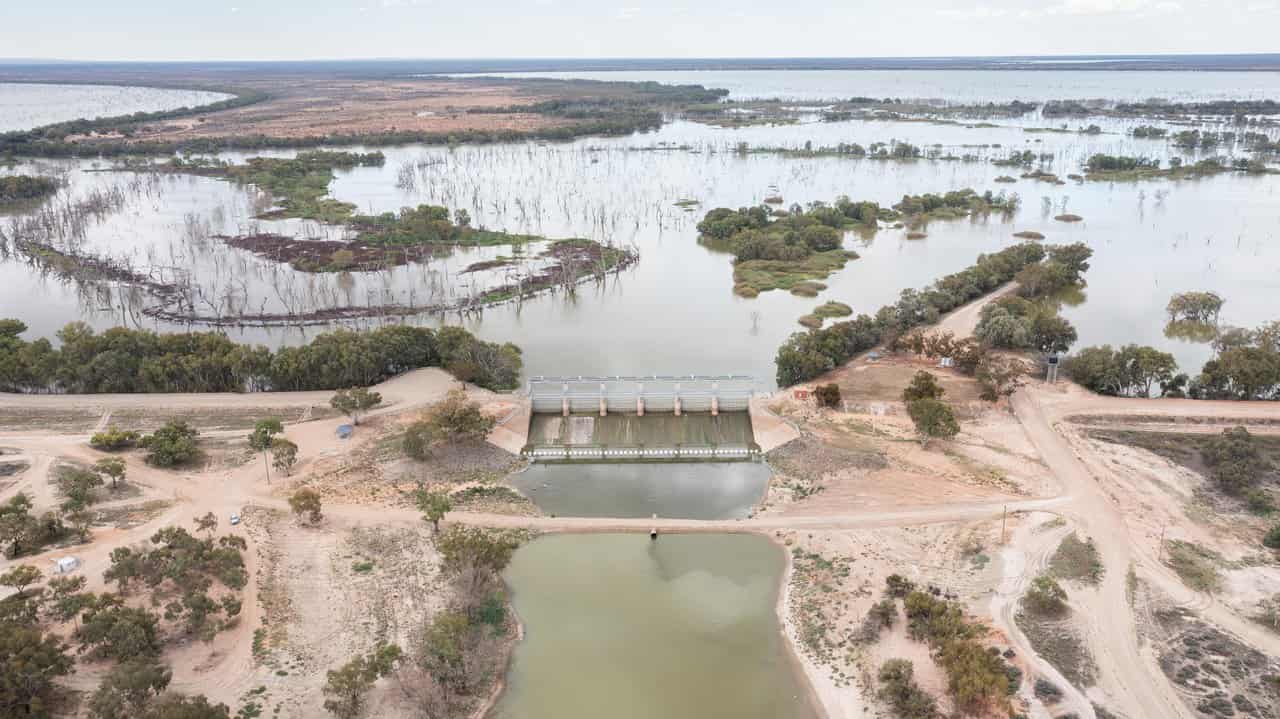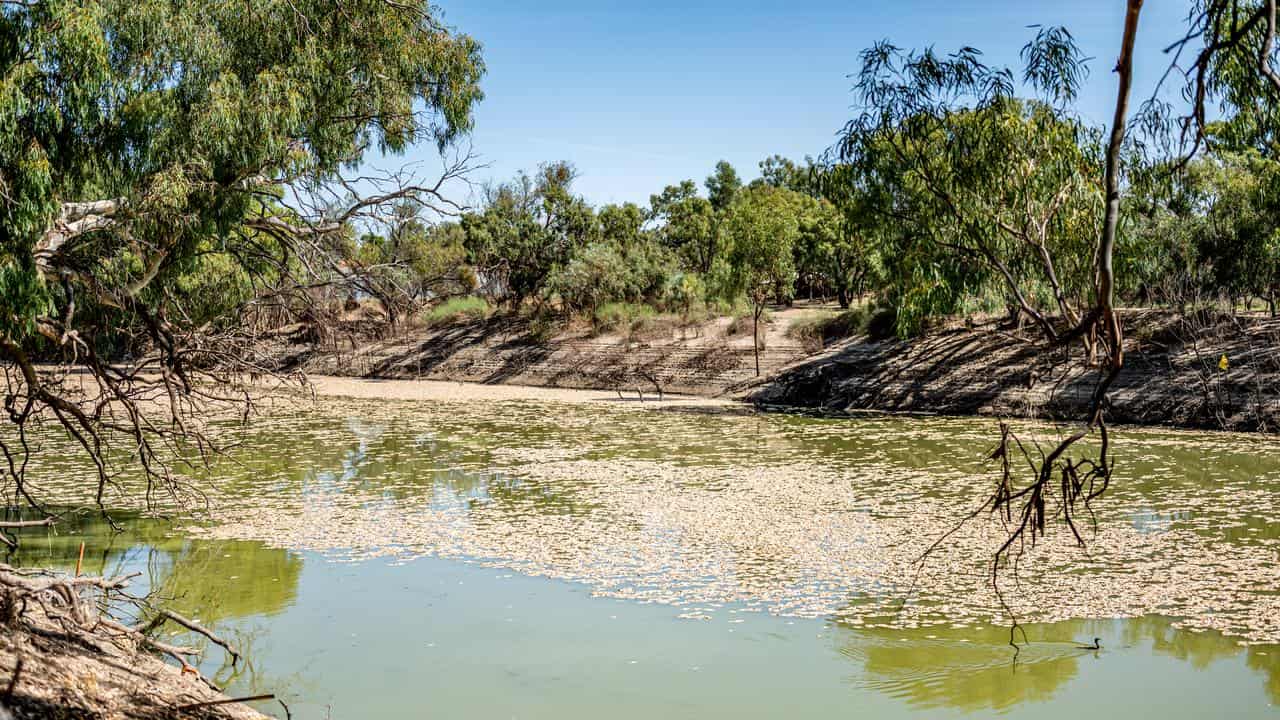
Bob and Lorraine Looney stand in their un-air-conditioned kitchen on a 46C day reminiscing about when their kids used to drink water from the Darling River.
It was the 1980s, Mr Looney says, and there was no filtration at the far western NSW town of Menindee.
"It was just coming straight out of the river out of the bubblers over at the school, no one died," he tells AAP.
"How would you be now if you pumped this stinking water out and drank it straight away?"
Four decades on, there's a notable absence of children running through sprinklers in the town.
Anger has tipped past frustration for many, who are fed up talking about Menindee's horrific fish kills, but fearful of more mass fatalities in the waterway, which is increasingly known by its Indigenous name, Baaka.
The Looney's neighbour John Nation remembers hauling dying cod out of the river in 2018 and putting them in his pond, where he threw them chicken carcasses.
He later returned the cod to the river.

"It's only the water quality that's really changed (over the years)," Mr Nation tells AAP.
Some locals fear the river and the community will never return to what they once were, saying families have left town because of a lack of work that has followed Menindee's water degradation.
"You've got to leave, there's no work here," Mr Looney says.
Many feel like the NSW government's remediation efforts are treating the effects rather than the cause of the problems.
Some blame Menindee's diminished water quality on farming, irrigation and over-extraction in the Murray Darling northern basin.
Some see the government's consultation efforts as a cyclical box-ticking exercise.

Local Graeme McCrabb says concerns continue to fall on deaf ears and there needs to be a holistic approach to river systems in Australia that isn't dictated by state borders and politics.
"It's a connected river system," Mr McCrabb says.
The consultation process for Menindee needs to change, but he doesn't expect it to.
"They can't (listen), they don't understand it," Mr McCrabb says.
"They live in Sydney, they come out. We've tried different methods."
Farmer and former rural issues researcher Kate McBride is warning of another potential fish kill, noting over the weekend several dead golden perch with visible lesions.
She wants the state government to make further ground towards fulfilling recommendations from the NSW chief scientist and engineer's review into the 2023 fish deaths while Menindee is on "high alert" for more kills.
The government is onboarding a Menindee-based senior water implementation officer to act as a local point of contact for the community and eyes on the ground.
Buoys are sending water quality information to workers so they can determine what releases are needed to prevent anoxic conditions.
Authorities are also trialling micro-bubble technology to oxygenate the water in Menindee.
"We also now have some money to start scoping out the costs of (fish passages), which is a more enduring solution," the NSW government's director of water planning implementation Allan Raine tells AAP.
"In terms of what's happening in the northern basin, (we're) considering temporary water restrictions to restrict low priority licences if the dry conditions continue to get worse and we see a dropping of the storage levels in the upper lakes."
The government is deploying a range of other measures to avoid fish kills, Mr Raine says.
He says fish in Menindee are currently under threat from oxygen deprivation caused by persistent stratification - generally a summer issue - rather than the hypoxia that caused the 2023 fish deaths.

Ms McBride says the current state government is better at communicating with the Menindee community and it appears to recognise locals are worth listening to.
However, she worries there aren't adequate emergency procedures in place if another mass fish kill were to happen, and says the major issues of flows and over-extraction upstream must urgently be addressed.
"Yes, the fish die because of a lack of oxygen, but fish kills are symptomatic of broader degradation to our river system," Ms McBride says.
In Menindee, water isn't just an environmental issue, Ms McBride says.
Rather, it's inextricably linked to the community's feelings and mental anguish.
"To always be on high alert for fish kills every time you look at your river rather than (admiring its beauty) ... that's really sad," she says.
The NSW government says it will continue to keep the Menindee community informed about its water quality in regular meetings.
In response to news of another possible fish kill at Menindee, state Water Minister Rose Jackson posted on social media: "I'm determined to keep grinding away to fix" the river.
This AAP article was made possible with the support of the Meta Australian News Fund and The Walkley Foundation.









